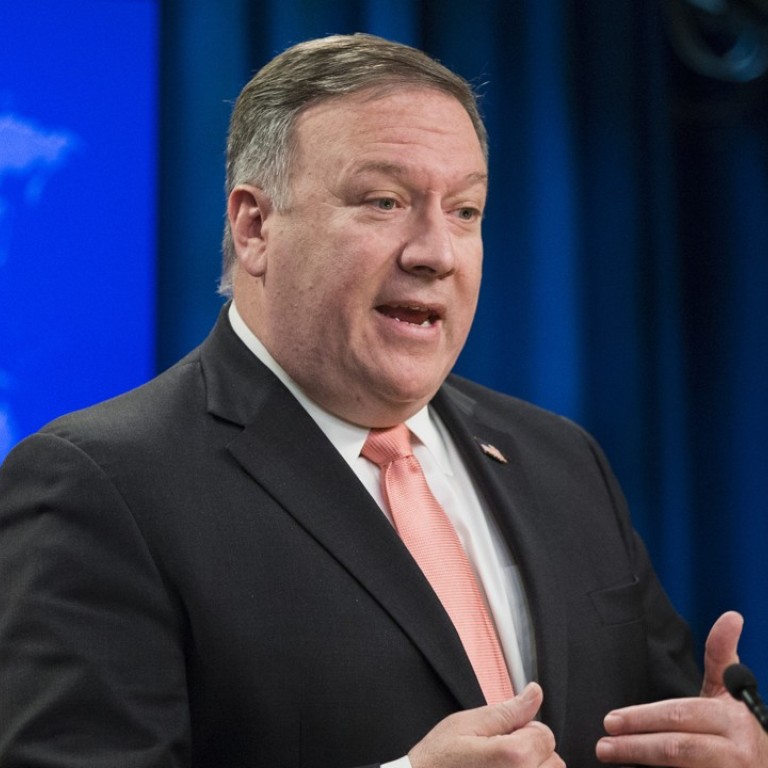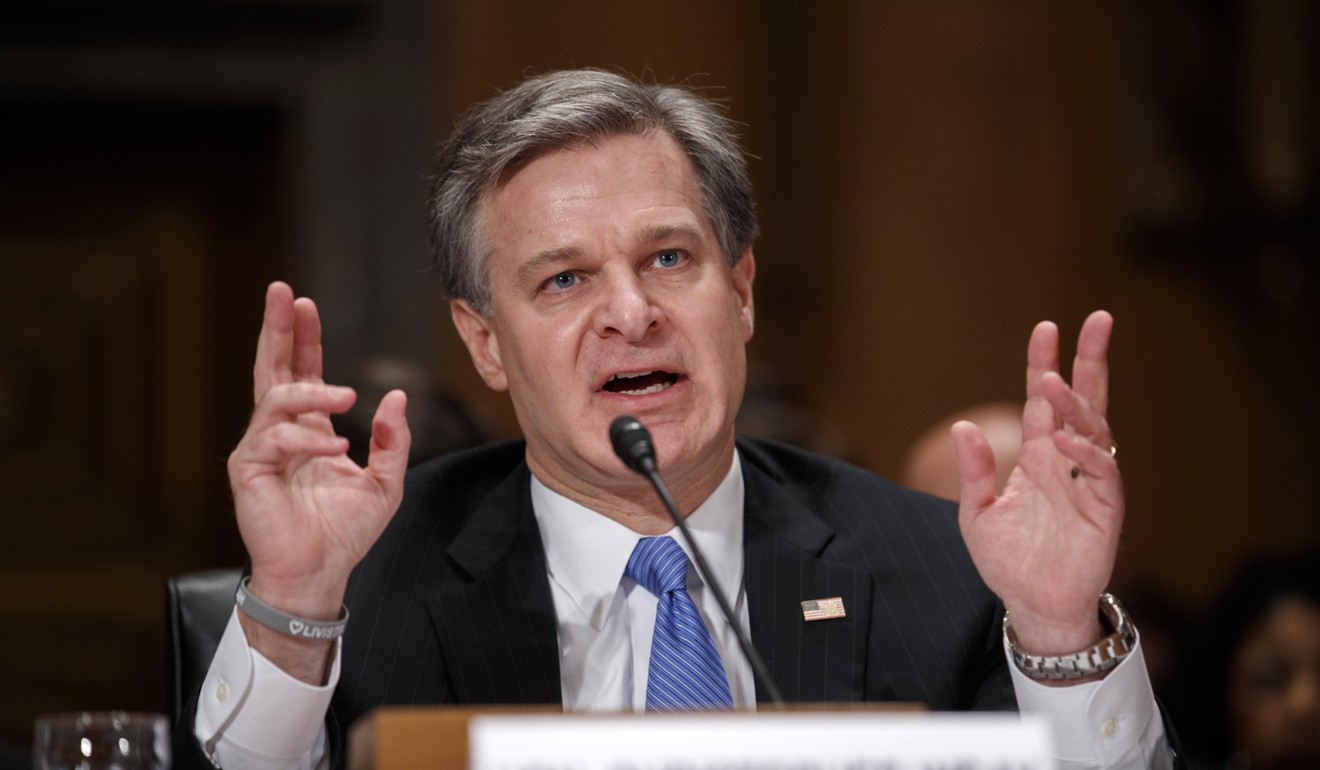
Mike Pompeo promises US will meet China’s strategies with ‘strong and vigorous response’
- In a radio interview, US secretary of state says Beijing ‘shows up with bribes’ for countries’ leaders as part of Belt and Road Initiative
- Cites efforts in South China Sea, trade policies and crackdown on religious minorities as examples of malign Chinese activities
Threatening to “oppose [China] at every turn”, US Secretary of State Mike Pompeo reiterated Washington’s hardening stance against Beijing during a wide-ranging radio interview on Friday.
Pompeo cited China’s trade policies, military activity in the South China Sea, a crackdown on religious minorities and efforts to influence other countries through infrastructure investment as evidence that Beijing’s economic and diplomatic initiatives had become more malign in the past two to three years.
“Whether that’s a risk through the stealing of intellectual property or trade rules that are unfair or activity in the South China Sea or their continued expansion in space and their efforts to develop their military, each of those actions has been met with a strong and vigorous response from the [US] and we’ll continue to do so,” Washington’s top diplomat said on The Hugh Hewitt Show.
“If you go look at President [Xi Jinping’s] stated intentions, you can clearly see that China has a plan that is different than the one that they had five years ago or even two or three years ago,” Pompeo said.
The Trump administration “has recognised the difference in China’s behaviour and the requirement for an American response to that changed behaviour”, the top US diplomat said.
He added that Beijing’s strategy “presents risks to American interests, and we intend to oppose them at every turn”.
Pompeo has repeatedly criticised Xi’s signature “Belt and Road Initiative”, a programme launched five years ago to funnel government money into development projects throughout Asia and beyond.
The initiative consisted initially of a land-based “belt” westward through Central Asia towards Europe and a maritime “road” through Southeast Asia towards the east coast of Africa, but Beijing has more recently focused its attention on Panama and other Latin American countries.
Watch: Belt and Road Initiative explained
Pompeo had harsh words for the initiative, telling the conservative radio host: “When China shows up with bribes to senior leaders in countries in exchange for infrastructure projects that will harm the people of that nation, then this idea of a treasury-run empire build is something that I think would be bad for each of those countries, and certainly presents risks to American interests.”
Washington’s own overseas investment agency is actively competing with China to finance infrastructure development projects in Panama, the president and CEO of the Overseas Private Investment Corporation (OPIC), Ray Washburne, told the South China Morning Post last week.
Earmarked for termination not long after US President Donald Trump took office in January 2017, the agency was recently given a lifeline, and next year is set to receive a doubling of its finance cap, to US$60 billion, as China expands its lending presence around the world.
Unlike China’s finance development model, which operates primarily through state-owned enterprises and their subsidiaries, OPIC offers financing and political risk insurance to private US firms bidding for infrastructure and development projects overseas.
China has come under criticism on many fronts by the Trump administration and US lawmakers from both political parties.
In the past four months, Trump launched a trade war targeting more than half of China’s exports to the US, Congress passed legislation that will increase scrutiny of Chinese investments in the country, and Pompeo’s State Department began restricting visas for Chinese graduate students pursuing degrees in sensitive research fields.

Recent reports that Trump and Xi plan to meet during the upcoming G20 conference in Buenos Aires raised hopes that the two sides might resolve their tariff war. Top White House economic adviser Larry Kudlow said in an interview on CNBC this week that the two leaders “will meet for a bit” during the summit, which will take place on November 30 and December 1.
But a day after Kudlow’s comments, The Wall Street Journal, citing anonymous sources, reported that the meeting would not go ahead unless China ended regulations that require foreign companies operating in the country to transfer proprietary technology to their local joint venture partners.
There has been no official comment from the Trump administration about a possible meeting.
Pompeo’s comments in the radio interview came two weeks after FBI Director Christopher Wray suggested that China had become a bigger threat to the US than Russia, which is accused of taking part in a broad effort to influence the outcome of US elections in favour of candidates including Trump.
Wray told a Senate Homeland Security Committee hearing on October 10: “China in many ways represents the broadest, most complicated, most long-term counter-intelligence threat we face.”

